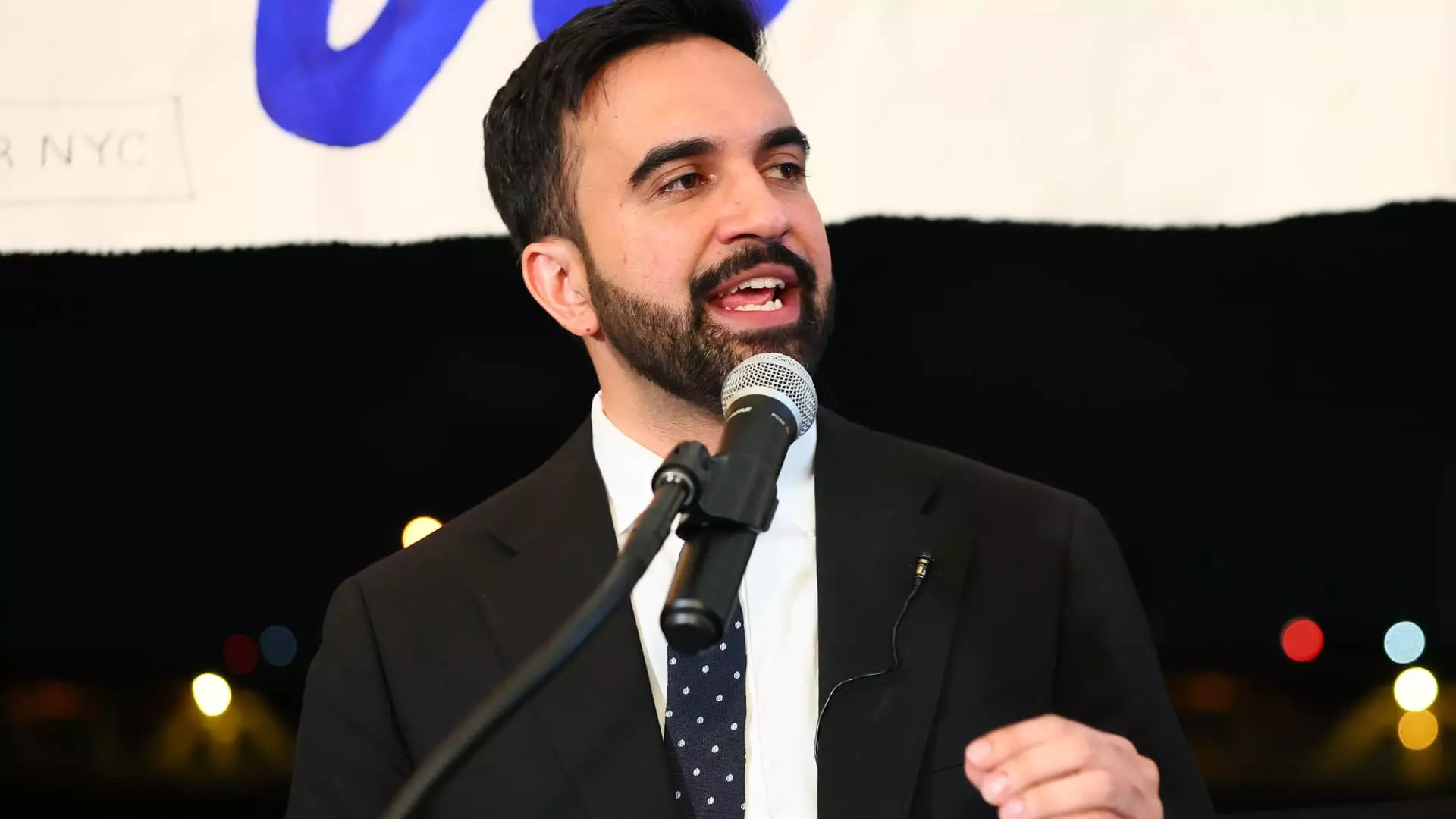On a seemingly ordinary Wednesday, the financial pulse of New York saw a notable tremor. Flagstar Bank, a reincarnation of New York Community Bancorp, observed a devastating 6% drop in its shares, directly correlating to the rising tide of political change. The spark? The ascendance of Zohran Mamdani in the Democratic mayoral primary. His campaign promise to freeze rent increases for stabilized units speaks volumes about the intersection of politics and economics, illustrating how a single political figure can precipitate a profound impact on the financial sector.
Zohar Mamdani’s stance is more than just a campaign promise; it represents a pivotal ideological shift—one that directly threatens the very framework upon which multi-family real estate investments depend. At the heart of this seemingly innocuous political maneuver lies the potential for significant economic implications, particularly for regional banks like Flagstar, which are heavily entangled in real estate financing. Analysis suggests that a substantial portion of Flagstar’s loan portfolio—between $11 billion to $18 billion, depending on the perspective of analysts—could be jeopardized by this impending freeze. This figure, representing a considerable slice of the bank’s total loan book, inevitably invokes concerns about its fiscal stability.
The Analysts’ Dilemma: Rationalizations and Risk Assessments
Financial analysts offer a cacophony of sentiments regarding Mamdani’s implications on Flagstar’s health. Deutsche Bank’s Bernard von-Gizycki voices apprehensions while suggesting that the rent freeze, if extended, could necessitate a spike in loan loss reserves—an ominous sign for investors. In contrast, Morgan Stanley’s Manan Gosalia downplays the threat, categorizing a short-term pause as “manageable.” This conflicting perspective showcases analysts scrambling to interpret the potential fallout, revealing an intrinsic uncertainty that is characteristic of our current socio-political landscape.
Yet, the opaque nature of financial forecasting raises a critical question: how can analysts confidently predict outcomes based on mutable political climates? Their assessments often dance between the realm of quantitative analysis and qualitative speculation, a tug-of-war exacerbated by unpredictable political shifts. At its core, this uncertainty hints at a broader issue: the fragility of our reliance on projected stability derived from historical trends that are now being threatened by bold political reforms.
Powers at Play: The Role of Governance in Economic Stability
More than just a simple rent freeze, Mamdani’s potential governance could evoke profound changes across the city, potentially looking to elevate corporate tax rates as well. In a political landscape where rent regulation could profoundly alter investment strategies, the prospect of a higher corporate tax underscores a broader narrative of skepticism hovering over the financial community. If we take this into account alongside a municipal climate that prioritizes tenant protections over investor interests, it reveals a starkly divided ideology that echoes throughout the city.
As formidable as Mamdani’s ambitions may be, it is crucial to examine the systemic implications that the interrelationship between governance and financial health creates. The uncomfortable reality is that New York’s real estate market does not operate in a vacuum; it affects socio-economic mobility, community development, and even the viability of banking institutions that underpin them. The fear that investors harbor reflects a broader concern for economic depravity should Mamdani follow through on his promises.
Future Considerations: Shifts in the Political and Financial Landscape
Looking ahead, the anticipated battle in the general election promises to exacerbate these uncertainties. While Mamdani faces off against Republican Curtis Sliwa and independent candidates, including current Mayor Eric Adams, the intrigue surrounding these candidates will undoubtedly keep investors on edge. For regional banks like Flagstar, whose fortunes are intricately tied to the real estate market, the specter of potential rent freezes and intensified regulation should serve as a clarion call—stimulating them to rethink their risk management strategies in what has become a turbulent environment.
As we pivot into an arena where political aspirations dictate economic realities, stakeholders—whether they are investors, analysts, or policymakers—must continuously adapt their strategies. Just as the financial sector has grown accustomed to flexibility, so too must it prepare for shake-ups engineered by the political apparatus. In this ever-evolving landscape, one truth remains clear: the stakes are exceptionally high, and the fallout from these intertwining forces will reverberate through the corridors of power and finance alike. It is a precarious moment where progressive reforms directly challenge the traditional norms of self-interested capitalism, thus painting a complex picture of a city on the brink of considerable transformation.


Leave a Reply